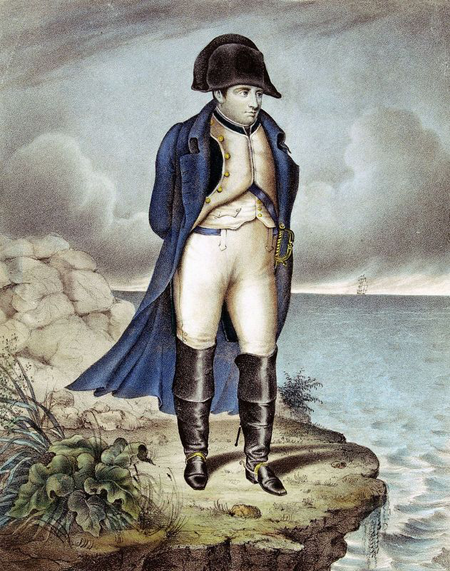 General Bonaparte finds out about Josephine’s betrayal
General Bonaparte finds out about Josephine’s betrayal
Although Napoleon suspected something wasn’t right, no one, not even his brother Joseph, had the courage to tell him about Josephine’s long-running affair with the dashing lieutenant Hippolyte Charles. It was Jean-Andoche Junot who confirmed the rumours to Napoleon during the Egyptian campaign. Junot told Napoleon that the affair was the talk of Paris and showed him an incriminating letter. Why Junot chose this particular moment for his revelation is unclear.
‘I have a great, great deal of domestic sorrow now the veil has been completely lifted,’ Napoleon wrote to Joseph six days later. ‘Only you remain there for me on this Earth. Your friendship is very precious to me. It is my sad condition to have these feelings for one person in my heart alone. You understand me.’
To add insult to injury, this letter was intercepted by the Royal Navy and published in England. Napoleon was adamant in his desire to divorce Josephine as soon as he returned to Paris. He wrote to Joseph, requesting his brother to find a country dwelling for him not far from Paris. ‘I’m so tired of human nature. I need solitude and isolation. My feelings have dried up.’
No letters from Napoleon to Josephine survived from the Egyptian campaign. It was possible that he stopped writing to her when he found out about the affair. Josephine was aware Napoleon knew the truth because of a letter from her son Eugène de Beauharnais, in which he wrote that he hoped she hadn’t been as wicked as everyone claimed.
 Napoleon arrives at Glubokoi
Napoleon arrives at Glubokoi Napoleon boards the HMS Bellerophon
Napoleon boards the HMS Bellerophon Legion of Honour is created
Legion of Honour is created The Battle of Chobrakit
The Battle of Chobrakit Napoleon proclaims himself the protector of a new German entity, the Confederation of the Rhine
Napoleon proclaims himself the protector of a new German entity, the Confederation of the Rhine
 National Assembly reconstitutes itself as National Constituent Assembly
National Assembly reconstitutes itself as National Constituent Assembly Queen Louise of Prussia arrives at Tilsit
Queen Louise of Prussia arrives at Tilsit